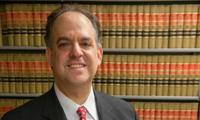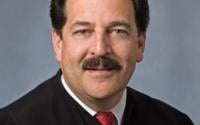
RICHMOND, Va. - A company facing tens of thousands of lawsuits is eligible to use bankruptcy courts to resolve them faster and easier, a federal appeals has court written in a decision that impacts just how much money asbestos lawyers can dream of.
The U.S. Court of Appeals for the Fourth Circuit earlier this month stopped lawyers from claiming Georgia-Pacific can't create a spinoff company, give it millions of dollars and send it into bankruptcy to handle asbestos claims.
The controversial plan has angered plaintiff lawyers hoping to score giant verdicts and settlements for their clients in civil courts. Their national group - the American Association for Justice - filed a brief in Georgia-Pacific's case urging the Fourth Circuit to reject the strategy.
But two of a three-judge panel said Georgia-Pacific violated no law in creating its Bestwall unit, which is designed to pay out claims in bankruptcy court like dozens of other asbestos trusts. The problem, plaintiff lawyers argued, is Georgia Pacific isn't actually strapped for money.
It was valued at $28.3 billion when it created Bestwall in 2017 but still wanted to utilize the bankruptcy system to keep legal fees and payouts down.
"The (Official Committee of Asbestos Claimants) has already had an opportunity to argue that solvent debtors are not entitled to bankruptcy protection," Judge A. Marvin Quattlebaum Jr. wrote. "It lost that argument before the bankruptcy court.
"The Committee may have another chance to renew that argument - at plan confirmation. If it doesn't like the result, it will then have a final order to appeal.
"But as we have explained, challenges about a debtor's eligibility for bankruptcy protection are not jurisdictional, even when those challenges are constitutional."
Federal courts, thus, have jurisdiction over bankruptcy cases filed by solvent debtors, Quattlebaum wrote. The decision affirmed a North Carolina judge's refusal to dismiss the bankruptcy case.
Plaintiff lawyers have long tried to stop the bankruptcy of Bestwall and critics of the plan claim it is an example of the so-called "Texas Two-Step." Johnson & Johnson tried to do the same to resolve cases claiming talc in its Baby Powder contained asbestos, but a Texas bankruptcy judge cited problems with a voting process in rejecting it.
In the case of Bestwall, the Fourth Circuit was asked whether federal courts have subject-matter jurisdiction over bankruptcy cases like its. Quattlebaum said the ruling does not approve the strategy once and for all.
Judge Robert King dissented, claiming the majority sidestepped the constitutional issue of letting solvent companies use bankruptcy courts for this purpose.
"Today, the majority approves a legal maneuver that fundamentally departs from the central purpose of our Nation's bankruptcy system, which has long been to provide a 'fresh start' to the 'honest but unfortunate debtor,'" King wrote.
"In effect, a financially healthy company has placed its tort liabilities to thousands of workers behind a wall of bankruptcy protection, without itself undergoing the scrutiny, transparency or risk that bankruptcy typically entails."
In determining how much it needs to place in its trust, Bestwall has sought to show show past settlements from the civil justice system are no indication of future responsibilities because those settlements were inflated by the business practices of plaintiffs lawyers.
The argument – one that has been successful before – is that asbestos lawyers target some companies with civil lawsuits while blaming others that have set up bankruptcy trusts for the same illnesses.
Before Garlock Sealing Technologies convinced a judge this was happening, companies facing lawsuits had no way to prove the same clients were telling different exposure histories in claims made to bankruptcy trusts.
After the Garlock ruling, which came after the company showed exposure history contradictions in the 15 cases it was permitted to investigate, many states passed laws requiring automatic disclosure of trust claims to civil defendants so they could find out who was being blamed for what.








